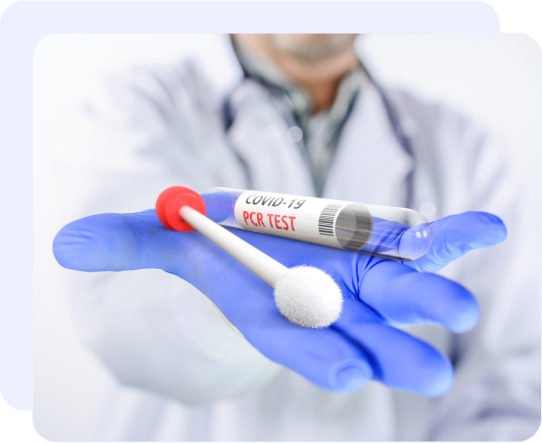The Science
A virus survives by producing copies of itself within the body of a host, be it a human or an animal. Therefore, a virus’s genetic material will be present in the host’s body.
Some viruses produce DNA, while others, such as SARS-CoV-2, produce RNA. PCR tests are designed to detect the SARS-CoV-2 RNA in the body of the host. Namely, in their respiratory canal.
Polymerase chain reaction (PCR) is the process of amplifying – or making many copies – of a short piece of RNA or DNA. PCR is used to detect a known sequence of RNA/DNA. Using very specific probes designed to bind the DNA sequence of interest, a short piece of DNA is amplified through many cycles of heating and cooling. PCR amplification allows scientists to determine if a piece of DNA is present in a sample.


